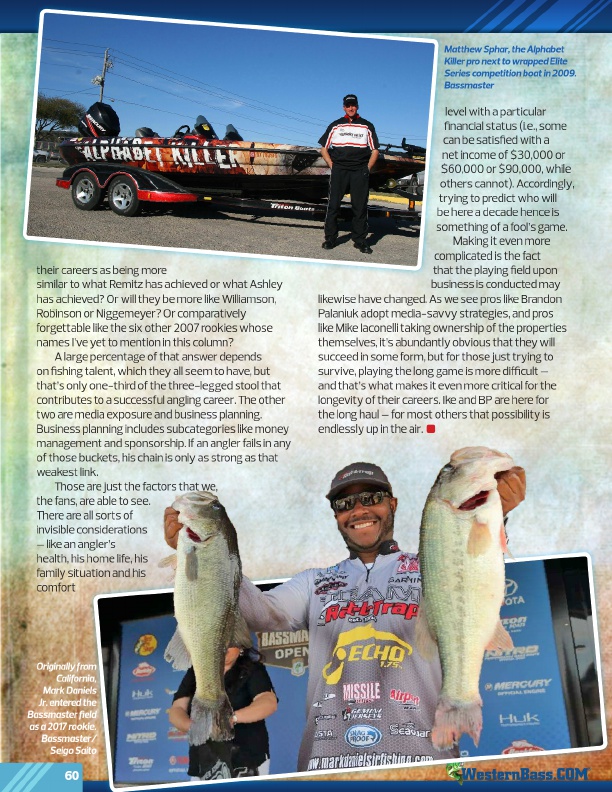
their careers as being more similar to what Remitz has achieved or what Ashley has achieved? Or will they be more like Williamson, Robinson or Niggemeyer? Or comparatively forgettable like the six other 2007 rookies whose names I’ve yet to mention in this column?
A large percentage of that answer depends on fishing talent, which they all seem to have, but that’s only one-third of the three-legged stool that contributes to a successful angling career. The other two are media exposure and business planning. Business planning includes subcategories like money management and sponsorship. If an angler fails in any of those buckets, his chain is only as strong as that weakest link.
Those are just the factors that we, the fans, are able to see. There are all sorts of invisible considerations – like an angler’s health, his home life, his family situation and his comfort
Matthew Sphar, the Alphabet Killer pro next to wrapped Elite Series competition boat in 2009. Bassmaster
level with a particular
financial status (i.e., some
can be satisfied with a
net income of $30,000 or
$60,000 or $90,000, while
others cannot). Accordingly,
trying to predict who will
be here a decade hence is
something of a fool’s game.
Making it even more
complicated is the fact
that the playing field upon
business is conducted may likewise have changed. As we see pros like Brandon Palaniuk adopt media-savvy strategies, and pros like Mike Iaconelli taking ownership of the properties themselves, it’s abundantly obvious that they will succeed in some form, but for those just trying to survive, playing the long game is more difficult – and that’s what makes it even more critical for the longevity of their careers. Ike and BP are here for the long haul – for most others that possibility is endlessly up in the air.
Originally from
California,
Mark Daniels
Jr. entered the Bassmaster field as a 2017 rookie.
Bassmaster/
Seigo Saito
60
®